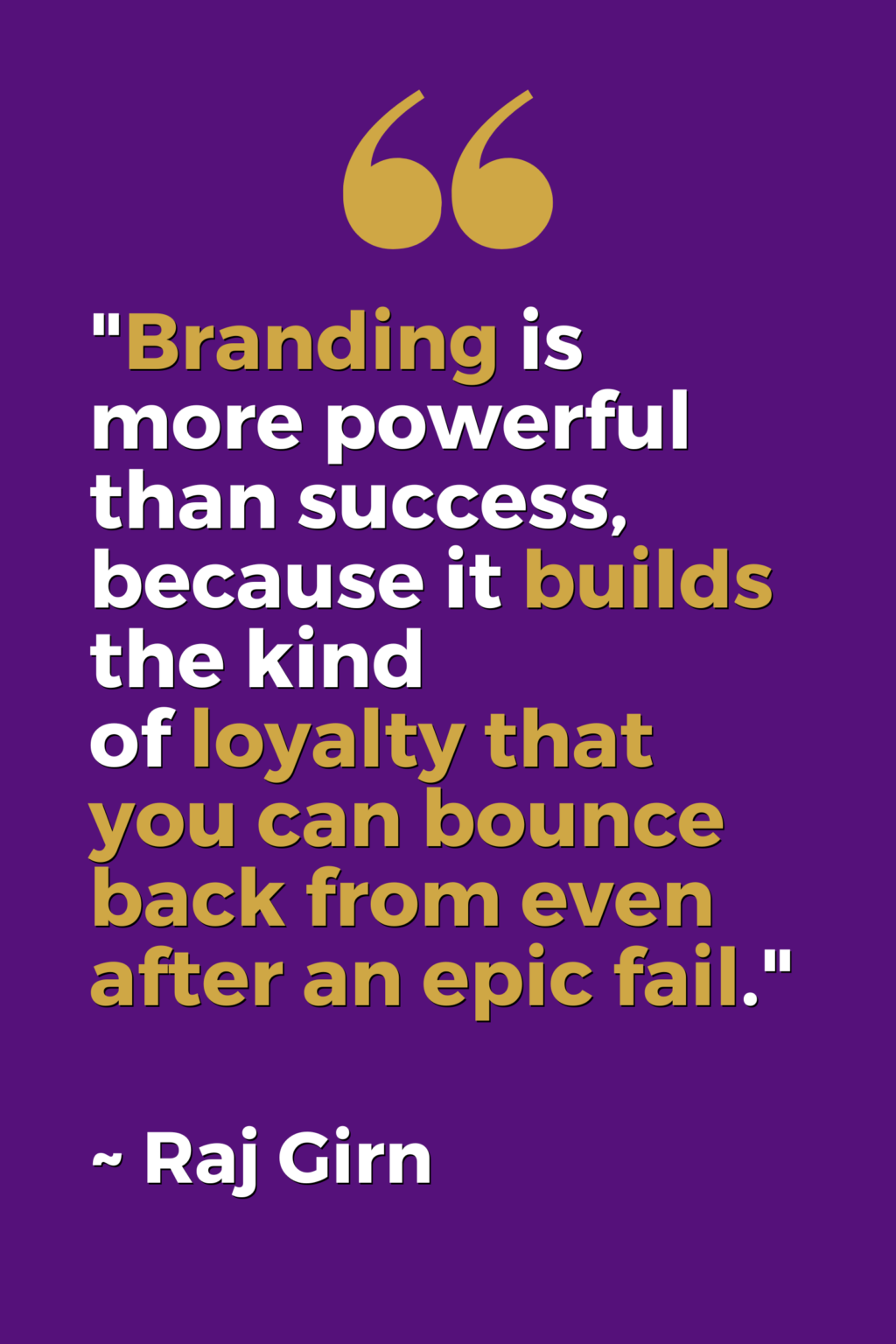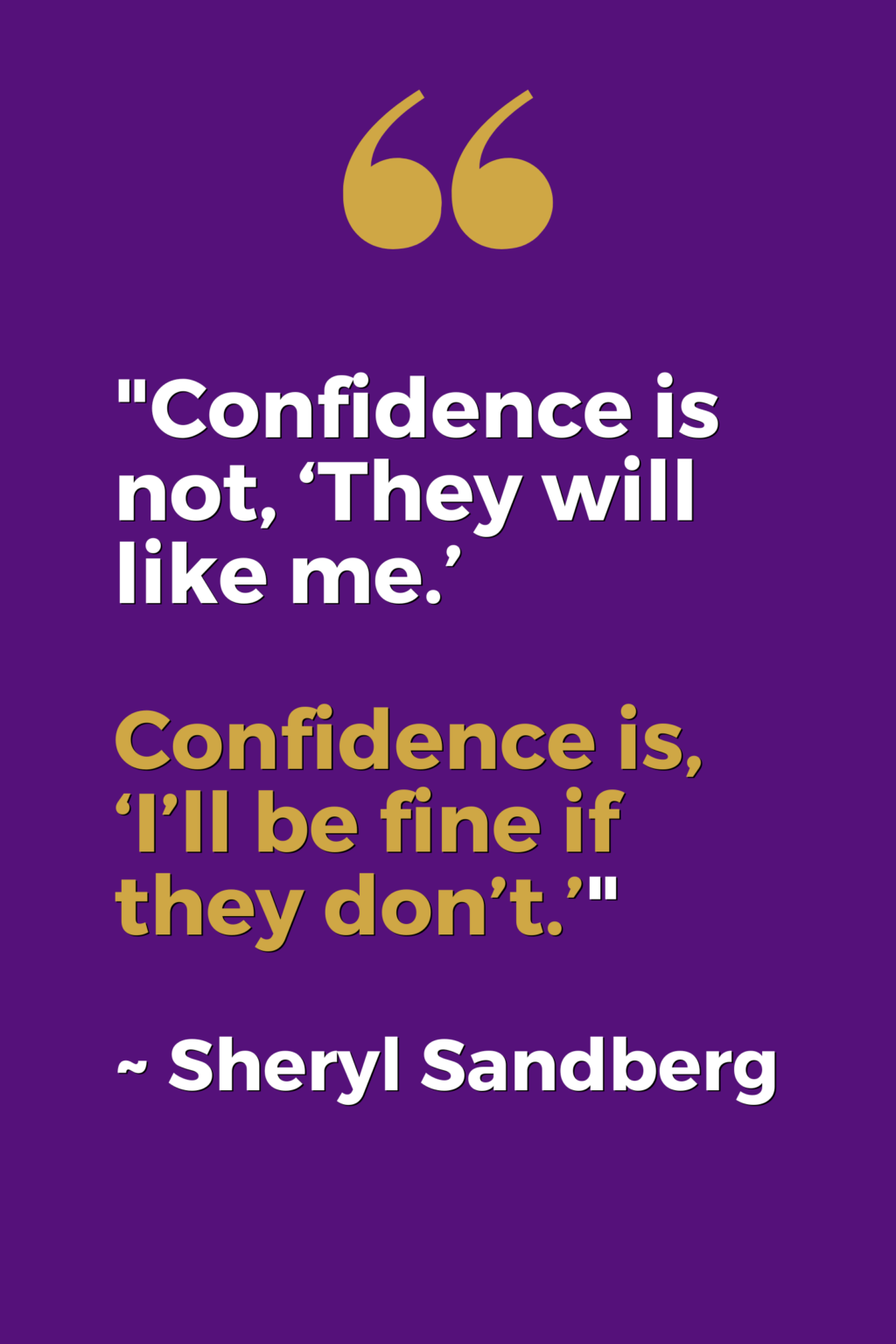Here’s the most important reality about ‘confidence’ that you don’t learn until you are on the other side looking back . . .
Confidence is not, 'They will like me.' Confidence is, 'I'll be fine if they don't.'
Sheryl Sandberg
And here is the second most important reality about ‘confidence’ that you don’t learn until you are back on this side looking forward . . .
‘Confidence’ is one of the most sought-after traits in both the personal and professional arenas of life, and whether we know it (consciously) or not, it influences our productivity, self-worth, and overall relationships on all levels.
I’ve learned that how successful we are at accomplishing these is directly proportionate to our overall mental well-being, which in turn, can make or break us. Yes, it goes that deep!
But what exactly is confidence and how can we develop, sustain, and grow it so that it positively impacts us?

In this article, we will dive into the definition of confidence, explore key research on the topic, and outline 31 actionable steps on how to build and maintain confidence.
What Is Confidence?
By definition, the Oxford English Dictionary states that Confidence is:
1. The feeling or belief that one can have faith in or rely on someone or something.
⭐ “The client had confidence in the company’s ability to deliver.”
2. A feeling of self-assurance arising from an appreciation of one’s own abilities or qualities.
⭐ “She gained confidence after years of practice.”
The Merriam-Webster dictionary defines confidence as:
1. Full trust; belief in the powers, trustworthiness, or reliability of a person or thing.
2. A feeling or consciousness of one’s powers or of reliance on one’s circumstances.
Both sources emphasize confidence as a state of trust – whether it’s trust in others, in abilities, or in one’s own qualities!
Confidence can be broadly defined as a feeling of ‘self-assurance’ arising from one’s appreciation of their own abilities or qualities. In other words, confidence is the belief that you can rely on your own judgment, skills, or attributes to succeed in a given situation. This is HUGE, because this belief enables individuals to take calculated risks, assert themselves in social settings, and pursue their goals with greater determination.
Psychologists generally differentiate between two types of confidence: self-confidence and self-esteem. While self-confidence refers to belief in one’s abilities in specific areas (like speaking in public), self-esteem relates to an overall sense of self-worth (that you are good enough/worthy). Though distinctly different, both contribute to the overall concept of what confidence is and are intertwined in their impact on an individual’s life (whether these are something that you possess or don’t).
Some Research To Consider About Confidence:
Research has shown that confidence plays a significant role in determining success.
Studies in psychology suggest that individuals who possess high self-confidence tend to perform better in their careers and personal lives.
According to a study by the American Psychological Association, people with higher self-confidence experience lower levels of anxiety and are more likely to face challenges head-on. They also exhibit better decision-making abilities and are more likely to achieve their goals.
Furthermore, research by Dr. Albert Bandura, a pioneer in psychology, introduced the concept of self-efficacy, which refers to one’s belief in their ability to accomplish specific tasks. Bandura’s work revealed that individuals with higher self-efficacy are more persistent, resilient, and successful in achieving their goals.
Statistics also underline the importance of confidence. A Gallup survey showed that 70% of respondents believed that confidence is a key trait for success in the workplace. In contrast, those with low confidence often struggle with assertiveness, face self-doubt, and experience higher stress levels, ultimately hindering their ability to succeed.
According to a Gallup survey conducted in June 2023, only 49% of employees are very confident that they can reach the highest level of position they wish to achieve in their careers. This statistic highlights the importance of fostering confidence within the workplace to enhance employee engagement and success.
Something to consider: what if the number was 100% – how would that positively impact workplace productivity levels and efficiencies and a decrease in overall costs? DOUBLE!
If you are reading this and feel that you want assistance in building your confidence, here are some common ones I work through with my clients to assist their journey accordingly . . .
31 Confidence-building Activities I Recommend!
Building and maintaining confidence is a continuous process, but with the right strategies, anyone can achieve a higher level of self-assurance from where they currently are. No matter your ground zero starting point, I am confident (lol), that action speak louder than words, so let’s kick things off with focusing on practical steps that can help you develop greater confidence immediately.
Here are 31 confidence-building activities that can help you improve self-assurance and catapult personal and professional growth. Why did I pick 31 specifically? Because research shows that in order to create a habit, a person needs to action tasks towards that habit for a minimum of a month, so I encourage you to mark your calendar for the next 31 days, and do one a day . . .
1. Set Small Achievable Goals
Break down larger tasks into smaller, manageable ones to create a sense of accomplishment as you check them off.
2. Practice Positive Affirmations
Every morning, tell yourself positive things about who you are, like “I am capable,” or “I am worthy.”
3. Keep A Success Journal
Write down small victories and positive moments daily. Reflecting on these helps boost confidence.
4. Take a Public Speaking Course
Strengthen your communication skills by speaking in front of others, which will help you feel more comfortable in social situations.
5. Learn Something New
Acquiring a new skill, such as playing an instrument or learning a language, can increase self-esteem.
6. Exercise Regularly
Physical activity not only boosts your health but also releases endorphins that enhance mood and confidence.
7. Dress for Success
Wear clothes that make you feel comfortable and confident. When you look good, you often feel good.
8. Volunteer
Helping others can give you a sense of purpose, achievement, and appreciation, which builds self-confidence.
9. Surround Yourself with Positive People
Spend time with people who uplift and encourage you, and distance yourself from negative influences.
10. Take Risks
Step out of your comfort zone and try something new or challenging. Small risks lead to bigger rewards in the future.
11. Mindfulness Meditation
Engage in daily mindfulness exercises to reduce anxiety and negative self-talk, helping you feel more confident in the present moment.
12. Practice Gratitude
Make a daily habit of writing down things you are grateful for. Focusing on positivity enhances your self-worth.
13. Prepare for Challenges
Planning and preparing for upcoming tasks, whether big or small, will help you face them with confidence.
14. Visualize Success
Imagine yourself succeeding in a task or achieving your goals. Visualization helps boost your belief in your abilities.
15. Improve Body Language
Practice open and confident body language, such as standing tall, making eye contact, and smiling.
16. Speak Up More
Start by voicing your opinions in small, everyday situations. Over time, it will help you feel more comfortable expressing yourself.
17. Celebrate Achievements
Acknowledge and celebrate both big and small victories. Recognizing your successes will build momentum and confidence.
18. Take Care of Your Mental Health
Regularly practice self-care activities, such as reading, journaling, or getting therapy if needed, to nurture your mental well-being.
19. Find a Mentor
Having someone to guide and encourage you can offer invaluable support and boost your self-esteem.
20. Join a Club or Group
Being part of a group or community with similar interests can boost social confidence and provide a sense of belonging.
21. Face Your Fears
Identify something you’re afraid of and confront it gradually, whether it’s public speaking, meeting new people, or trying a new activity.
22. Learn from Failures
Instead of letting mistakes bring you down, view them as opportunities to learn and grow. This helps maintain your confidence through setbacks.
23. Practice Self-Compassion
Be kind to yourself. Treat yourself the same way you would treat a close friend who is struggling.
24. Get Out of Your Comfort Zone
Try new experiences regularly, whether it’s traveling, trying new food, or taking on a different project at work. It keeps you adaptable and confident.
25. Create a Vision Board
Visualize your goals and dreams on a board. Seeing your aspirations in front of you can help reinforce your sense of purpose.
26. Improve Your Skill Set
Focus on developing a specific skill that you value, like coding, painting, or cooking. Mastery in any field boosts your confidence.
27. Ask for Feedback
Request constructive feedback from others to improve yourself and gain a better understanding of your strengths and areas for growth.
28. Meditate with Mantras
Use calming mantras like “I am enough” or “I am worthy” during meditation to instill confidence and peace of mind.
29. Keep a Compliment Jar
Write down compliments or positive things people say about you, then read them when you need a confidence boost.
30. Set Boundaries
Practice saying no to things that drain you. Establishing boundaries will make you feel empowered and respected.
31. Engage in Creative Expression
Whether it’s writing, painting, dancing, or playing music, creative activities can help you express yourself and boost your self-worth.
If you need accountability support, contact us at [email protected], and we will get you started with a plan to work with us to ensure that you get through the 31 days guaranteed!
Final Thought!
If I haven’t made myself clear, let me state it again: Confidence is not an innate trait reserved for a select few; it is a skill that anyone can cultivate with time, patience, and consistent effort.
Understanding what confidence is and employing strategies to develop it can significantly enhance your ability to pursue your goals, face challenges, and live a more fulfilling life.
Confidence doesn’t appear overnight, but with consistent effort, these 31 activities above can help build and nurture it beyond your current comprehension.
From setting goals to practicing self-compassion, confidence comes from within and is strengthened by actions. The more you invest in yourself, the more confident you will become!








